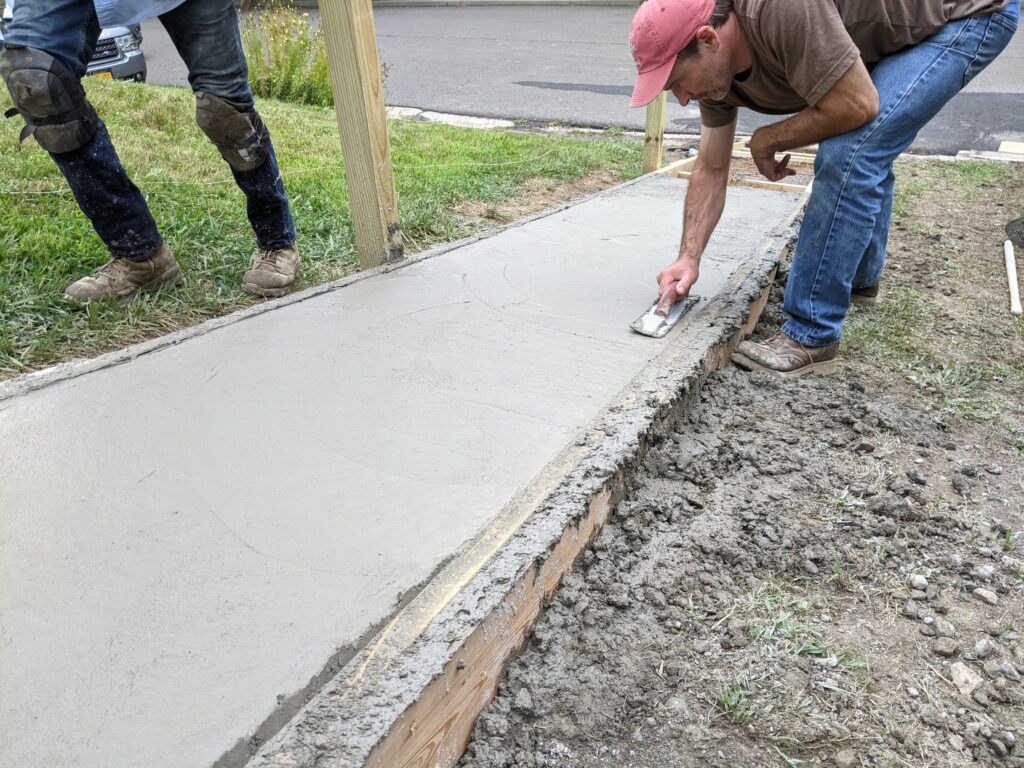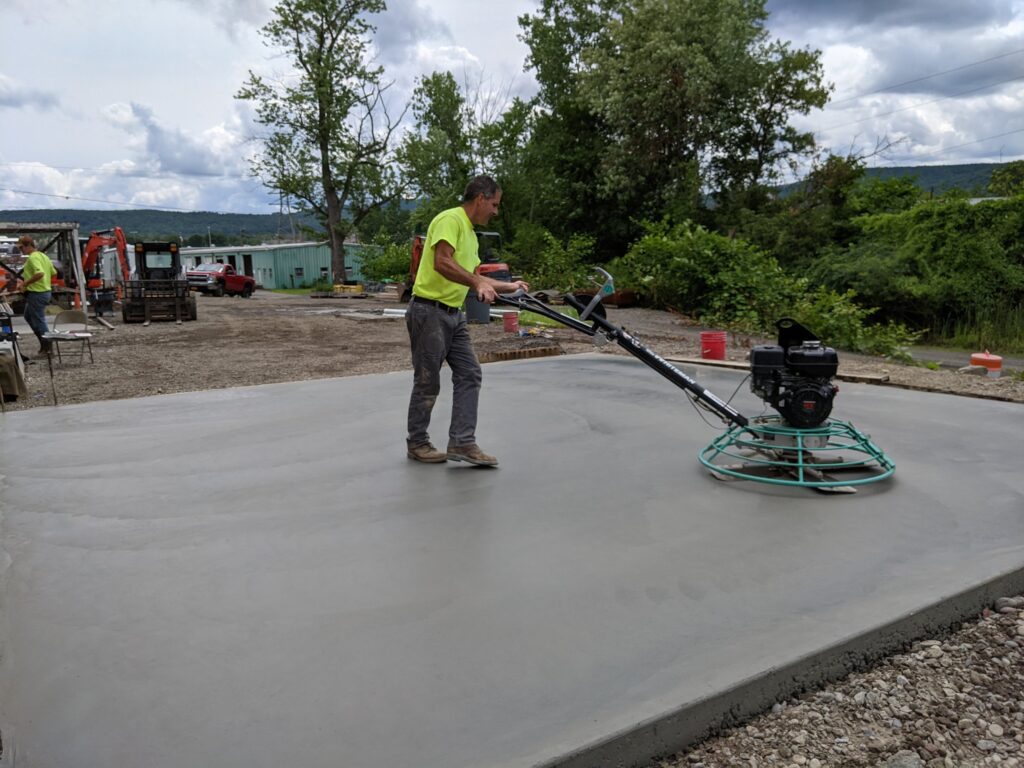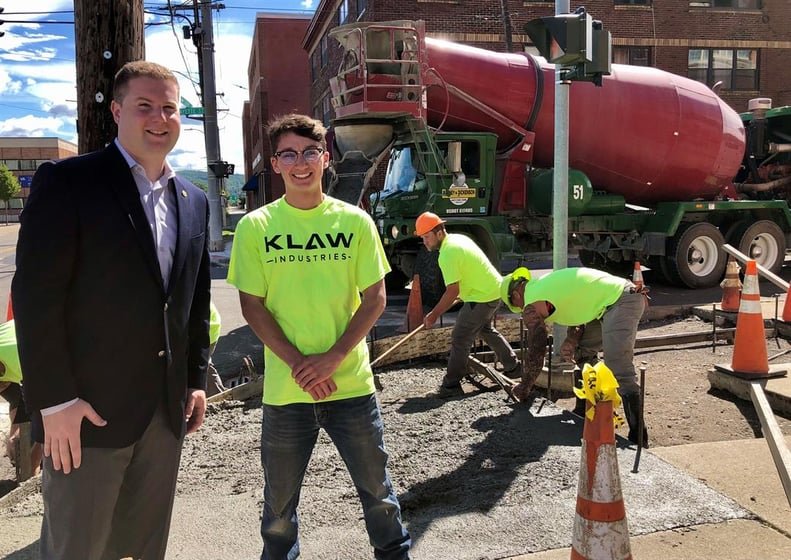KLAW Industries: Success Story
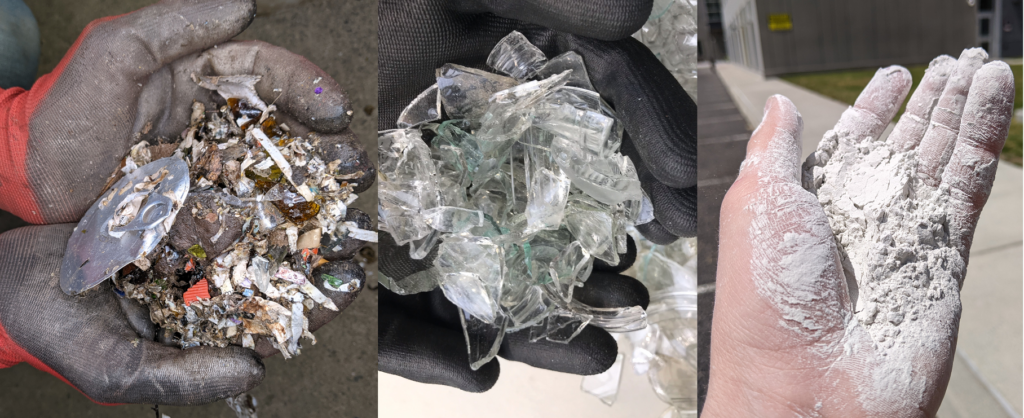
Product Development Grant winners recycle waste glass into a concrete-strengthening material
Recyclers across the U.S. send glass to landfills because it’s too contaminated to recycle. Meanwhile, concrete contractors struggle with the high costs and carbon emissions of cement. A pair of cousins, electrical engineer Jack Lamuraglia and mechanical engineer Jacob Kumpon, founded KLAW Industries to address both problems. The company turns unrecyclable wine bottles into Pantheon™, a raw material used in concrete mixes.
Turning one industry’s trash into another’s treasure
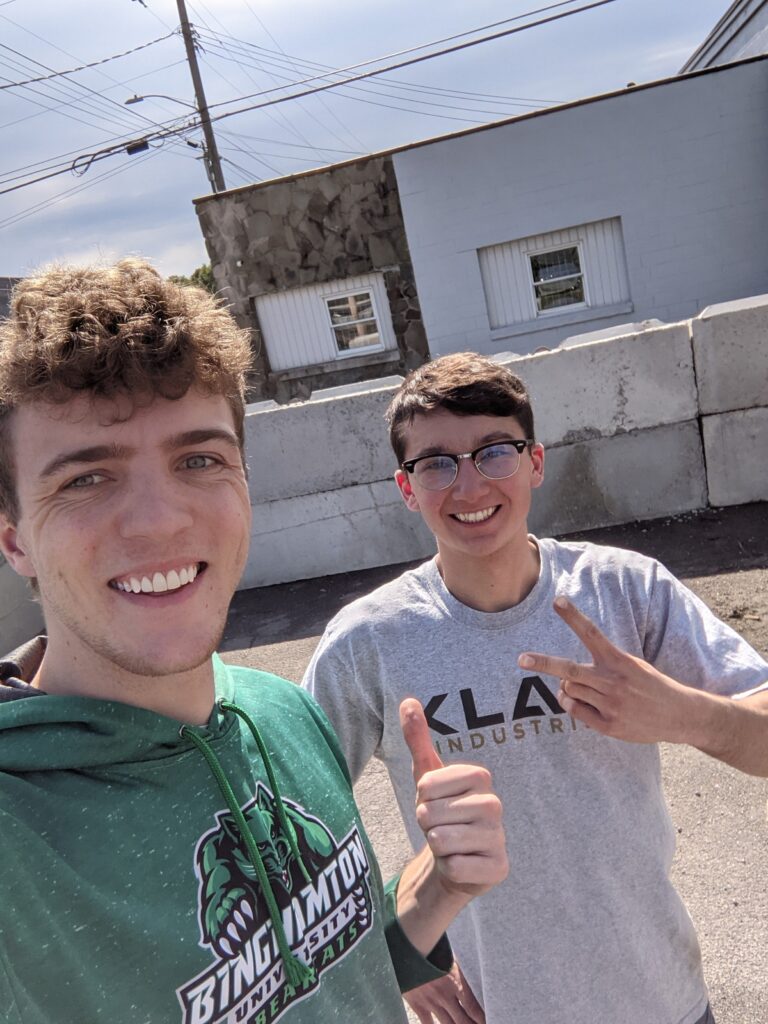
Lamuraglia and Kumpon were college students when they developed Pantheon™. Their journey began with a simple question. Why does so little of what we toss in the recycling bin get recycled? The cousins toured local recycling plants, where they learned that dirty, contaminated post-consumer glass plagues the recycling industry. Only 40 percent of glass thrown into single-stream recycling gets recycled. Recyclers pay hefty bills to landfill the other 60 percent.
Hoping to divert thousands of tons of glass waste from landfills, Lamuraglia and Kumpon turned to other high-volume industries. They chose concrete, in part because it generates seven to eight percent of the world’s CO2 emissions. The cofounders developed a way to grind waste glass into a fine powder that concrete producers can use as a supplementary cementing material (SCM). In 2019, they founded KLAW to bring their SCM Pantheon™ to market.
To understand SCMs, imagine a concrete object as a loaf of bread. Cement, the main ingredient, is the wheat flour of concrete. Producers add aggregate (materials like sand and gravel) for bulk, strength, and stability, then mix in water. The cement reacts with water and hardens to create concrete. The problem is, cement production releases an immense amount of CO2. If cement is wheat flour, SCMs are rye flour or cornmeal – they can replace a portion of the main ingredient, but they change its physical properties. In Pantheon™’s case, it improves concrete’s strength by 11 percent.
Kumpon said, “To us, cleantech means developing something that makes the final product better, stronger, and less expensive, while positively affecting the environment. Our material replaces up to 30 percent of the cement powder, which reduces the carbon impact. Concrete producers can get a stronger mix without increasing their price point or worrying about emissions.”
If you think that sounds good, concrete producers agree. The City of Binghamton in New York contracted with KLAW for all the city’s new curbs and sidewalks. KLAW is expanding its production volume so it can supply materials for bigger projects like parks and urban development.
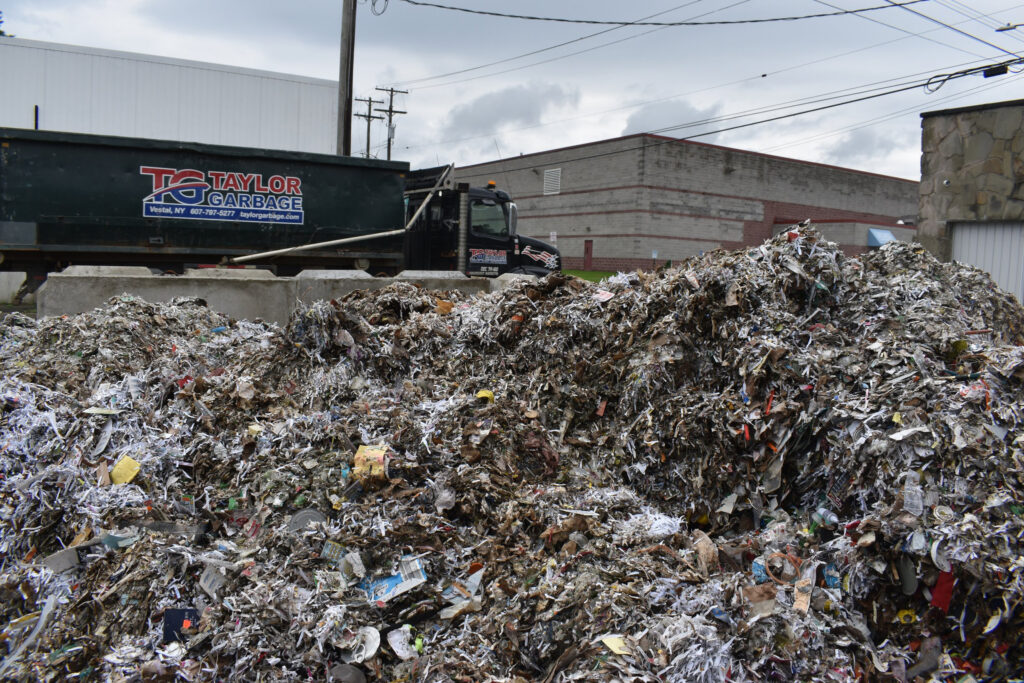
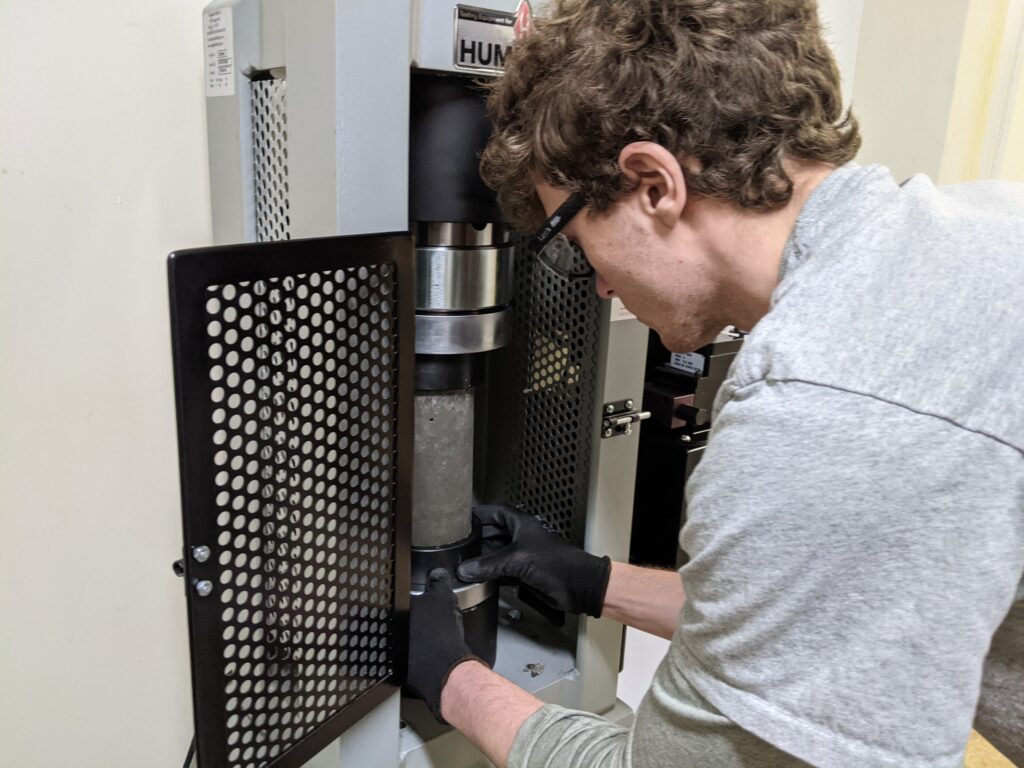
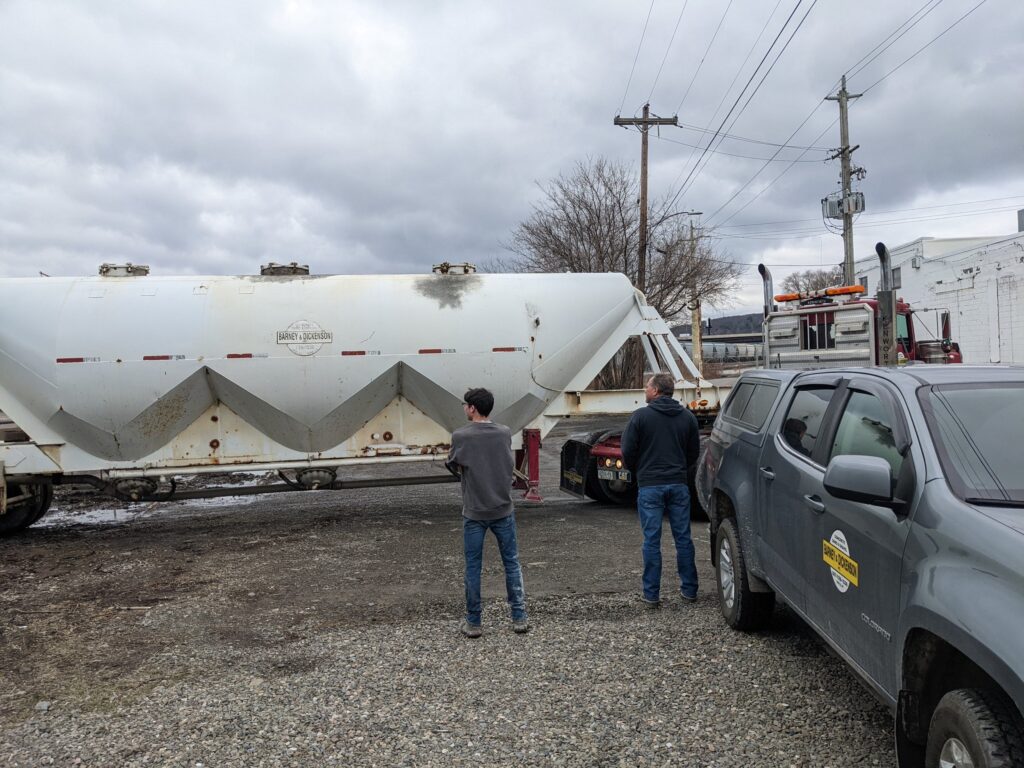
Adding tons of storage with the FORGE Product Development Grant
Pantheon™ was in such demand that KLAW had to turn down some contracts because they couldn’t keep up. It was time to dramatically increase production.
“Before, we were making about a ton a day. Now we’re producing two tons an hour. Where do you store 16 tons of material at the end of each day?” Kumpon said. The one-ton fabric “super sacks” KLAW used initially were no longer practical. The company needed its own dedicated silo – a steel storage cylinder outside its facility where they could store tons of material to load into concrete producers’ trucks.
Kumpon applied for FORGE’s cleantech Product Development Grant after seeing it via FORGE ecosystem collaborator Scale for ClimateTech’s email list.
“I was happy we heard about FORGE,” Kumpon said. “Finding people interested in helping us scale our production with meaningful improvements like storage infrastructure was awesome.”
The $10,000 Product Development Grant from FORGE is helping KLAW buy a silo to store more material. Ramping up production means diverting more waste and reducing more carbon emissions.
Looking forward: modernizing materials
KLAW is scaling up production to take on bigger concrete projects across upstate New York. Kumpon said he hopes Pantheon™ helps bring attention to the role of materials in decarbonizing concrete. Since the world produces about 4 billion tons of concrete annually, replacing 20 percent of the cement in it with recycled materials like Pantheon™ could drastically reduce emissions.
“To make a major difference, we have to improve concrete, make it less expensive, and find a way to decarbonize it,” Kumpon said. “With those three together, we have something concrete producers want to use.”
By the numbers
- KLAW is proud to be totally grant-funded and has raised more than $1.2 million in funding
- Across its projects in Binghamton, KLAW has prevented 31.5 tons of CO2 emissions so far
- KLAW’s goal with the Product Development Grant is to get to a total of 463 tons of prevented CO2 emissions by the end of 2023
